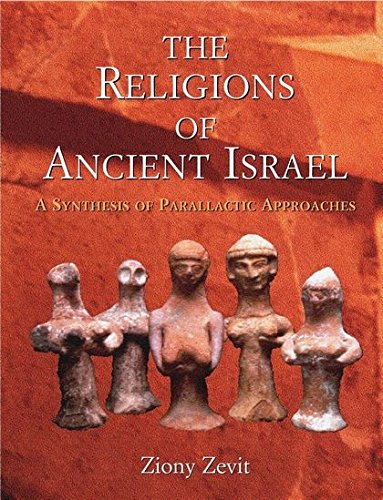Articoli correlati a The Religions of Ancient Israel: A Synthesis of Parallactic...

Sinossi
This is the most far-reaching interdisciplinary investigation into the religion of ancient Israel ever attempted. The author draws on textual readings, archaeological and historical data and epigraphy to determine what is known about the Israelite religions during the Iron Age (1200-586 BCE). The evidence is synthesized within the structure of an Israelite worldview and ethos involving kin, tribes, land, traditional ways and places of worship, and a national deity. Professor Zevit has originated this interpretive matrix through insights, ideas, and models developed in the academic study of religion and history within the context of the humanities. He is strikingly original, for instance, in his contention that much of the Psalter was composed in praise of deities other than Yahweh. Through his book, the author has set a precedent which should encourage dialogue and cooperative study between all ancient historians and archaeologists, but particularly between Iron Age archaeologists and biblical scholars. The work challenges mant conclusions of previous scholarship about the nature of the Israelites' religion.
Le informazioni nella sezione "Riassunto" possono far riferimento a edizioni diverse di questo titolo.
Informazioni sull?autore
Ziony Zevit is Distinguished Professor of Bible Northwest Semitic Languages at the American Jewish University, USA. He has published numerous works including Solving Riddles and the Anterior Construction in Classical Hebrew. The editor of Hebrew Studies, he is also on the editorial board of The Bulletin of the American Schools of Oriental Research.
Le informazioni nella sezione "Su questo libro" possono far riferimento a edizioni diverse di questo titolo.
EUR 40,69 per la spedizione da U.S.A. a Italia
Destinazione, tempi e costiRisultati della ricerca per The Religions of Ancient Israel: A Synthesis of Parallactic...
The Religions of Ancient Israel. A Synthesis of Parallactic Approaches
Da: Windows Booksellers, Eugene, OR, U.S.A.
Hardcover with dust jacket. VG/VG. Normal shelf wear 821 pp. Codice articolo 746789
Quantità: 1 disponibili
The Religions of Ancient Israel: A Synthesis of Parallactic Approaches
Da: dsmbooks, Liverpool, Regno Unito
hardcover. Condizione: Good. Good. book. Codice articolo D8S0-3-M-0826447287-4
Quantità: 1 disponibili

